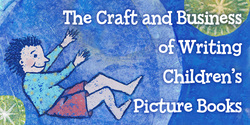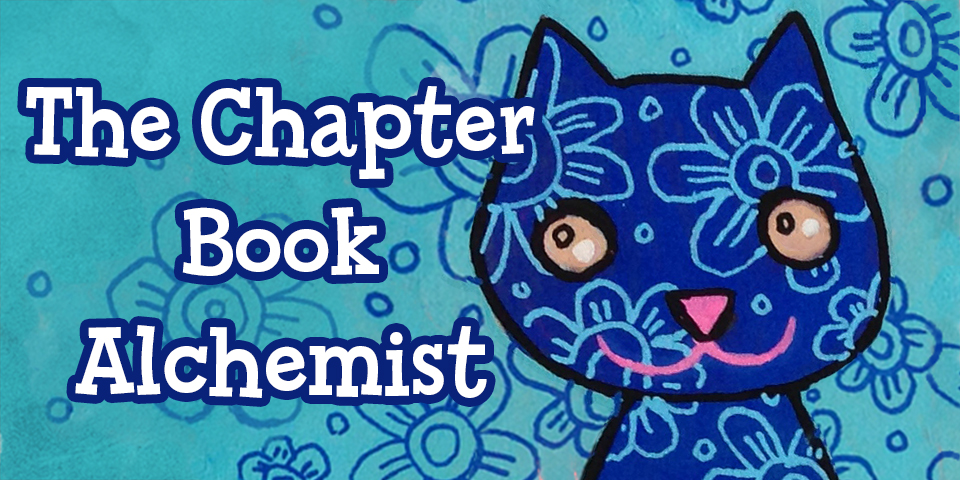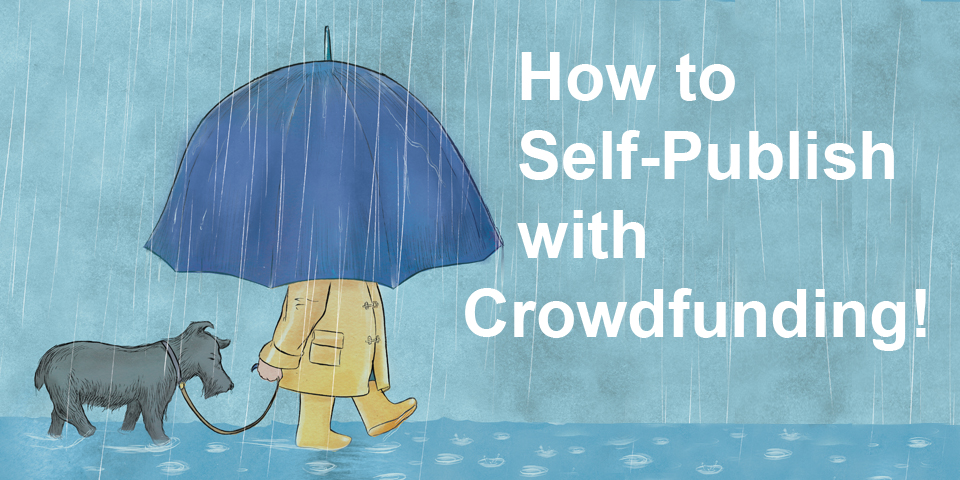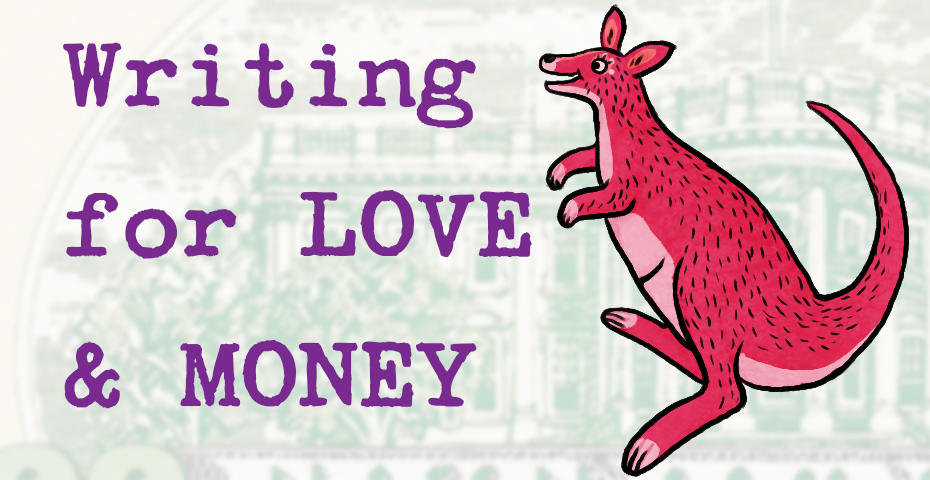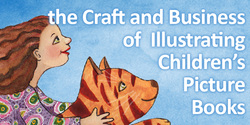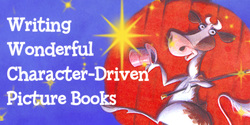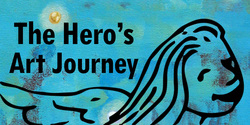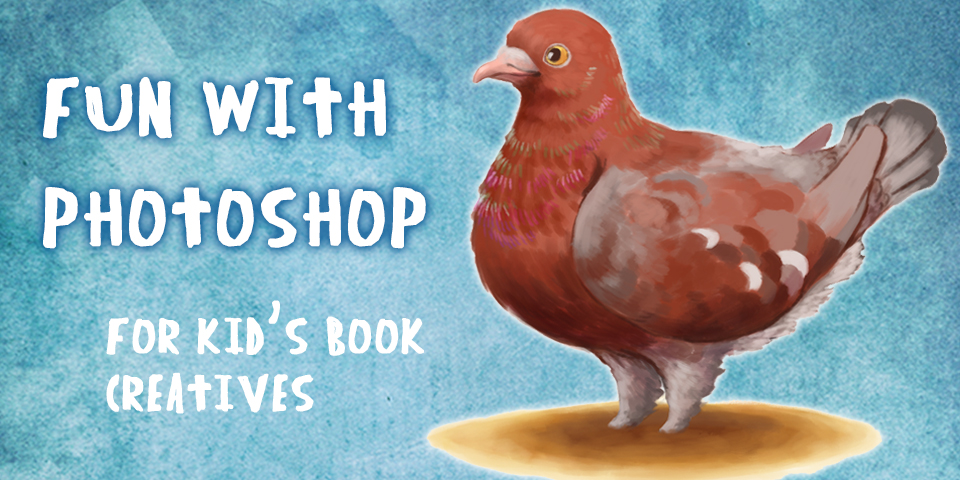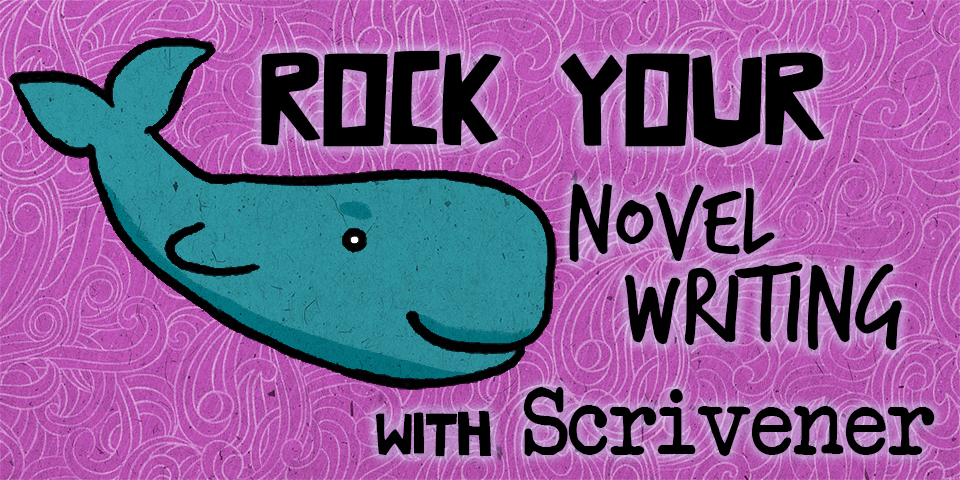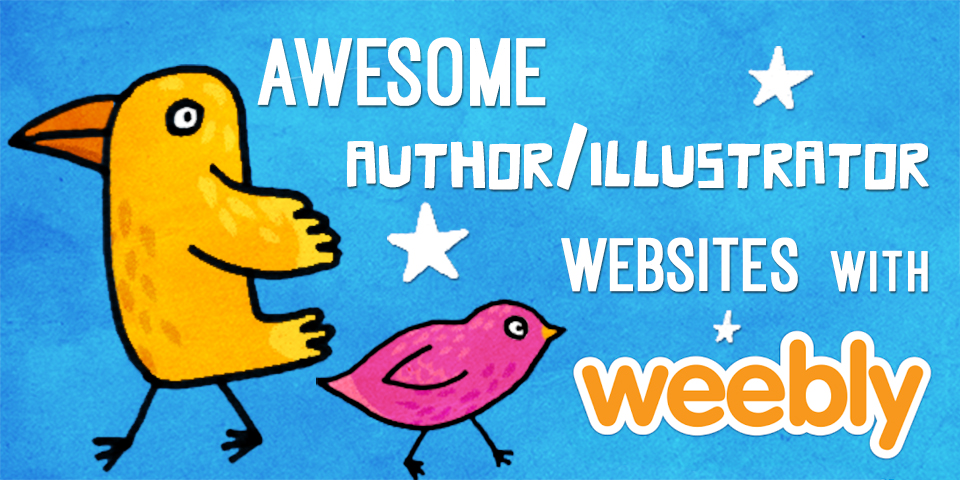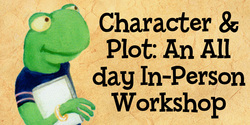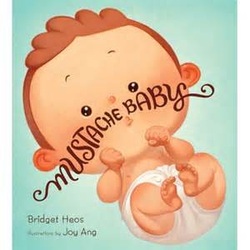 It’s awards season! Social media is abuzz with mock ballots and predictions. Every day seems to bring nomination lists or announcements of wins of awards, some of which I have never even heard of. As the prestigious Caldecott draws near the question on everyone’s lips: are you Team Journey or Team Mr. Tiger? It’s fun to get caught up in the excitement. There are a slew of awards… but where is the award for the funniest book of the year? I really wish America had an equivalent of the UK’s Roald Dahl Funny Prize. Well, if necessity is truly the mother of invention, I hereby establish the Blogettes Funny Prize and I cast my vote for what I think was the funniest picture book of 2013. Mustache Baby by Bridget Heos, illustrated by Joy Ang. Now for a little personal backstory. When this book first came out I rolled my eyes. Maybe it’s because I live in Brooklyn, the facial hair capital of the hipster world. Mustaches are such a trend right now and I found it silly that a picture book would stretch that trend. I just didn’t get it…but I had never read it either. After hearing lots of people rave about this book, I finally picked it up at a bookstore one evening. And it was laugh out loud funny! Dare I say, it was brilliant! The premise: When Baby Billy is born with a mustache, his family takes it in stride. They are reassured when he nobly saves the day in imaginary-play sessions as a cowboy or a cop and his mustache looks good-guy great. But as time passes, their worst fears are confirmed when little Billy’s mustache starts to curl up at the ends in a suspiciously villainous fashion. Sure enough, “Billy’s disreputable mustache led him into a life of dreadful crime.” Why my nomination for the Blogettes Funny Prize:
So what about you? Cast your nominations for the Blogettes Funny Prize. Nominations must be picture books traditionally published in the year 2013. In the comments, tell us your choice and the reason for your nomination. Let’s make this the year we shine a much-deserved light on the books that make us laugh. 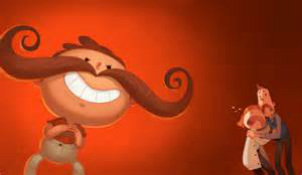 In previous chapters Marcie Colleen has been a teacher and theatre educator, but now she splits her days between chasing the Picture Book Writer dream and chasing toddlers on the playground as a nanny. Both are equally glamorous! Her blog, The Write Routine and her Teacher’s Guides, can be found at www.thisismarciecolleen.com. You can also follow her on Twitter. Additionally, Marcie is the Education Consultant for Picture Book Month. She contributes the 4th Friday of the month, as a Blogette, right here, posting on humor in picture books. Marcie lives with her fiancé and their mischievous sock monkey in Brooklyn, NYC.
7 Comments
The 2014 Digital Book Award winners are in. As a small press publisher, author-illustrator, and a mom/grandma of a techno savvy family, I’ve enthusiastically explored the world of digital picture books. Just like their physical counterparts, presentation matters. Digital picture books come in a variety of platforms and each platform has a wide depth of execution. The basic form, known as a fixed ebook, is typically screen shots of the physical book with no bells or whistles. The other extreme of the digital picture book is the interactive, animated, game loaded, book app. One is underwhelming, the other overwhelming. Somewhere in between is the enhanced digital book. I reviewed the 2014 Digital Book Award Finalist in Children’s categories prior to the winners’ announcement. I find it interesting that while I appreciate the story content of the winners, I’m not as pleased with the digital interpretation. Since the children’s categories combine picture books and chapter books, Good Night Moon and The Adventures of Captain Underpants were in head-to-head competition. This is just more evidence of the digital market finding its way. Most of the finalist titles are available on a variety of platforms. I’ve noted the platform I used while reviewing the digital editions. The experience may be different on another device. 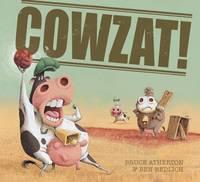 COWZAT!, Colour Me Play COWZAT!, Colour Me Play Category description from 2014 Digital Book Awards: App—If the title must be downloaded from an App Store, and/or the ebook title can only be read on an app platform, it’s an app. It can be a native app or a web-based app. Files formatted using ePub and KF8 specifications are not considered apps. App – Children Winner: COWZAT!, Colour Me Play Picture Book, My device experience: iPad App also available Android App This digital book app is full of animation gyrations, text undulations, and cacophonous sensations, all of which are a bit overwhelming and in my opinion interfere with the story. It’s hard to know where to look without an anti-emetic on board and I’m not prone to motion sickness. Too bad, because it’s a fun story with lyrical rhyme and lots of action. Sometimes, just because the technology can make it wiggle, squeak, and squirm, doesn’t mean it should be included. The read to myself option is missing from this title. The user can only choose between between play and autoplay. While this award winning title is a great story and the digital designers know all the bells and whistles, it’s more like a cartoon video than a book. Great story with an overdone app. 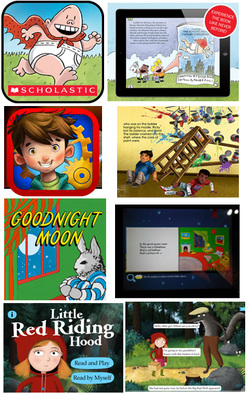 2014 Digital Book App Finalists 2014 Digital Book App Finalists App Finalists: The Adventures of Captain Underpants, Scholastic Chapter Book, My device experience: iPad App This book app is a basic digital ebook with the option of accessing interactive material. Fortunately, the interactive material isn’t intermixed with the story text. Kids have the option of hearing the story or reading it themselves. They can even turn the narration on and off at any time during the story. Good execution of the page swipes in this edition. The next page spread flows into place without jarring the visual cortex. The privacy policy and information is clearly stated. Axel’s Chain Reaction, Allison Pomenta Picture Book, My device experience: iPad App I was able to download a lite version at no cost to sample the book app. Wise move on the part of the publisher. I purchased the full version because I invested in the story and wanted to know the outcome. I wasn’t disappointed. The interactivity of this picture book includes precisely timed tapping of characters. The execution of animations are controlled and add to the story. Separate from the story, educational applications expand on the subject of kinetic art with hands on activities. The privacy policy is clearly stated and easy for parents or teachers to find. I thoroughly enjoyed this story app. I plan to purchase it for my grandchildren. Goodnight Moon Storybook App, Loud Crow Interactive Picture Book, My device experience: iPad App I was eager to view this bedtime classic. I appreciate the parental link to privacy policy. Read options include read to me, autoplay and read myself. At any time during the read myself option, the user can activate audio. Note on text highlighting, dark red and black are difficult for some viewers with color acuity issues. On a positive note, the background music has volume control. The interactive illustration jiggles don't auto-load, so the user may enjoy a straight book experience. The interactive animations distract from the bedtime feel so these options are best for a non-bedtime experience. For the most part, it's pleasantly paced and calming for young children. My two year-old nephew comes to mind as a good recipient. Little Red Riding Hood, Nosy Crow Picture Book, My device experience: iPad App This story app has offers different routes to Grandma’s house. Along each route, Little Red adds to her already heavy basket. The items she collects come into play during the finale. Users must tap blue dots to experience the full story. Without tapping in the correct order or at the correct time the story may not make sense. Privacy warning. Typically, apps or ebooks will ask to use the camera or microphone on your device, or at least issue a privacy statement. No such option offered for this ebook, imagine my surprise when the app accessed my camera and I viewed my own reflection in the pool in the woods. I’m particularly concerned for the privacy of children. A privacy policy should clearly state any device interaction. This ebook edition doesn’t include a privacy policy. 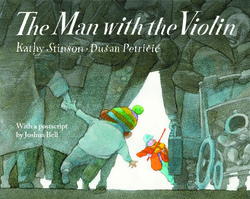 The Man with the Violin, Annick Press Ltd. The Man with the Violin, Annick Press Ltd. Category description from 2014 Digital Book Awards: Ebook Fixed format/Enhanced—These files utilize any of the enhanced ePub specifications and/or any (or all) of the full range of KF8 specifications, such as audio, video, HTML5, Javascript, fixed layout, pop-outs, etc. Ebook Fixed Format/Enhanced – Children Winner: The Man with the Violin, Annick Press Ltd. Picture Book, My device experience: Kindle Great story, beautiful art, but enhancements are underdone. This is a classic fixed edition. The only digital attribute enlarges the text when tapped. I really like the story, but feel the book falls shy of using digital to enhance the elegance of the story. It’s a story about a boy falling in love with music, so where’s the sound? Disappointment aside, there are no distractions to take the child away from the delightful story as the book is served straight up without digital embellishments. My music-loving grandson turns five the end of this month. The Man with the Violin will be one of his gifts.  Ebook fixed format/Enhanced Finalists: Seahorses & Pipefish, Dive in Your Imagination Enhanced Photo Picture Book, My device experience: iBook Lovely underwater photography with exquisite use of limited pallet and composition elevating this to an art-photo ebook. The imagery expertly educates about seahorses and pipefish in an elegant way. Speaker button reads on command. The user may activate videos showing how each subject moves. I’m really looking forward to sharing this with my grandkids. Alicewinks: Alice’s Adventures in Wonderland, Walrus & Carpenter Productions LLC Chapter Book, My device experience: iBook also available on Kindle I like the presentation of different artists’ depictions of Alice over the years. The mild animation complements the text and moves in a non-overwhelming fashion. However, during play of the book the characters morph from one artist rendering to the next. The reader will benefit by viewing the artist archive before reading or experiencing the story. First Time on a Plane, Parragon Picture Book, My device experience: iBook No read aloud option. Activities are age appropriate. I might be picky here, but when Dan’s dad makes a beep at the metal detector, we never find out why or what happened. On a positive note, the text is clear to read. 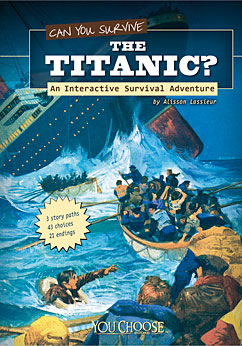 Category description from 2014 Digital Book Awards: Ebook Flowable—These files are made in ePub and/or KF8 without utilizing features such as audio, video, HTML5, Javascript, fixed layout, pop-outs, etc., in order to work on a wide variety of e-reading devices. Ebook Flowable – Children Winner: Can You Survive the Titanic?: An Interactive Survival Adventure, Capstone Press Chapter Book, My device experience: Kindle The reader has the option of choosing a role or actions in the story to experience the Titanic’s sinking. Period art and photos are interspersed throughout the text. Includes some bios of real survivors. The story adapts its flow to the content selected by the user. This is a classic example of how the digital experience may interfere with the brain’s natural mapping of text in a traditional book. A menu tree showing the various story branches would help the user navigate to a previous section. That aside, it is an excellent way for kids to enjoy historical fiction from a variety of perspectives. 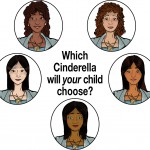 Finalists: Cinderella Spinderella, Light Publications Chapter Book, My device experience: iBook I put away my personal disdain of prince rescuing damsel stories and read the book anyway. The “Spinderella” in the title comes from Cinderella’s wheelchair. In this chapter book, the user chooses a black, white, Asian, Hispanic or Subcontinent Indian for Eleanor, aka Cinderella, and/or her Prince. The digital execution of the story is well done, but I personally have an issue with the overall message of prince rescuing stories. While it includes contemporary twists, wheelchair bound Cinderella lives in the inner city, why not take it all the way? Must it take a prince to rescue her? 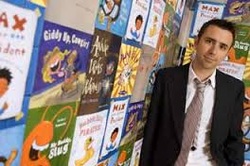 In Jarrett J. Krosoczka’s fascinating Ted talk “How a boy became an artist” he speaks of a challenging childhood and says, “...the characters that I read about I fell in love with and they became my best friends. So my best friends in life were the characters I read about in books.” It’s preferable, I’m sure, for a human child to have another human child as a best friend. If that’s not possible, a dog, cat, or horse is a good substitute. But many of us have also had the experience of a book character being our good companion. After a long day at school or a difficult experience, we looked forward to sitting down with that companion to share an entertaining, comforting, fictional world. 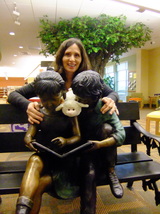 At the beautiful Baxter County Library in Mt.Home, AR. At the beautiful Baxter County Library in Mt.Home, AR. We writers feel validated when children connect with our book characters. It's surprising how much humans enjoy relating to fictional characters. We’re a social species and enjoy being around others, in real life or in the pages of a book. Connecting with book characters is actually a form of social interaction that oils our hearts and our minds. What kind of characters do readers want for best friends? How do we write characters that children yearn to connect with? The answer to the first question varies with the child. But there are universal elements to keep in mind as we create our characters. Below are three. 1) Unique characters are always in high demand. The uniqueness provides interest, curiosity, and fun. 2) But we also want characters readers can identify with. The identifying is necessary if the reader is to understand and care about the character. 3) Compelling characters are also desired. The one thing we want our characters to have is the power to make readers want to know them better. If the reader becomes impatient with a character – skipping paragraphs or becoming restless or bored - then that character isn’t compelling enough. Remember when you fell in love? You hung on every word your loved one said and every thing she did. It’s similar when a reader falls in love with a character. The reader hangs on the character’s every word, every action. There’s another reason a reader might grow impatient with a character. That character may not be moving quickly enough. He may not be making enough happen, either physically or mentally. So use those verbs! In picture books much of the action can be shown in illustrations, but when you have an opportunity or a choice, think verbs over adjectives. 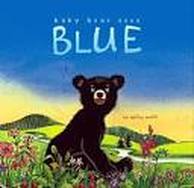 Open Ashley Wolff’s delight-filled Baby Bear Sees Blue. The first page is filled with the character doing things. Lots of verbs. “Deep down in the den, Baby Bear wakes up. He yawns and blinks and stretches his stubby legs.” His questions are filled with verbs too. “Who is warming me, Mama?” “Who tickled me, Mama?” The verbs guide us through the book as we follow curious Baby Bear’s exploration of the world. 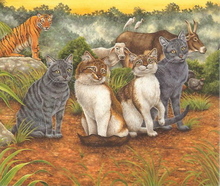 Mighty Hunter,Calico Colors,Adventurer w Mom Mighty Hunter,Calico Colors,Adventurer w Mom While writing this blog, I looked up at a painting from my Heart of a Tiger and was reminded of the names the four kittens gave themselves at the end. They seem good reminders of what’s needed to help us write characters who will give strong connections to readers. In Hindi, the names are Bahadur Shikari, Rang Birange Kapare, Sailani, and Bangali Sher Ka Dil. Mighty Hunter – Be brave! Hunt not only for the right words, but the right character for your story. Calico Colors – Feel pretty. That’s right. Feel good about yourself. Only when you feel good about yourself and trust yourself can you write your best work. Adventurer – Be curious. Humans are naturally curious. Readers want characters who are curious; they want to live vicariously through the characters' adventures. Heart of a Tiger – Have heart and give your characters heart, because if you’re giving your reader a character who might become a best friend, you certainly want that character to have heart. 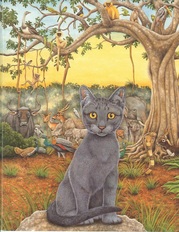 Bangali Sher Ka Dil - Heart of a Tiger Bangali Sher Ka Dil - Heart of a Tiger Called a “born storyteller” by the media, Marsha Diane Arnold wrote the award-winning “homegrown treasures” column prior to penning eleven award-winning picture books. Last year, Marsha contracted with Neal Porter Books for two new picture books, Kate O'Sullivan of Houghton Mifflin for another, and Tamarind for a fourth. She grew up on a Kansas farm, but today creates imaginative worlds and wacky characters in northern California surrounded by her garden, deer, hummingbirds, turkeys, oaks, and redwoods. Marsha's course Writing Wonderful Character-Driven Picture Books has helped many published and aspiring writers to write stronger characters. You may read about her books, school visits, and life at www.marshadianearnold.com. 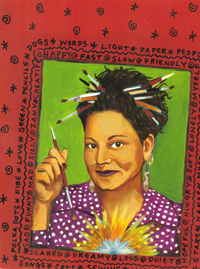 from the book, Just Like Me from the book, Just Like Me Cheat Please! OK, back to scooching ever closer toward the AuthorArtist position. Last month we took a break from the art and explored why Quantum Physics and being a children's book authorartist have everything to do with each other....so, how did it go? Did you become as clear as possible about what it is that you want to create in your career? Did you imagine it as if it's already happened? I encourage you to keep playing with those concepts from last month as we now turn back again toward some art making. This month I’m going to encourage you to cheatcheatcheat…now, I don’t really believe in cheating because of that whole second art rule of mine, “there’s never a right or wrong way to make art.” But technically, the kids always think of today’s project as cheating at first, until I educate them of course. 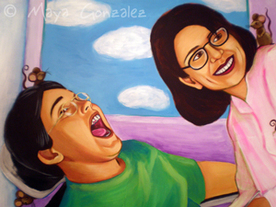 from Angels Ride Bikes from Angels Ride Bikes To blow a big hole in the idea of cheating, I did a whole book using this photo technique - Angels Ride Bikes and Other Fall Poems by Francisco Alarcon. I also used this technique for my contribution to Just Like Me, one of my all time favorite books. All you do is take a photograph, you can even use one of yourself or your kids to practice on, or someone you want to honor, like Nelson Mandela or Frida Kahlo and make art directly onto it. Enlarge the photo in black and white on heavy cardstock. I like to use oil pastels, color pencils or acrylics. With acrylics you can actually paint it to the point that you no longer see the original printed image. With oil pastels and color pencils part of what makes it interesting is that you can still see the photo print showing through. 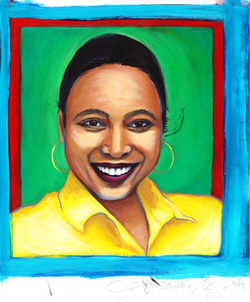 Toyomi Igus Toyomi Igus Go slowly and let your colors build up. This is a great opportunity to get a sense of the shape of the face, how shadows work, facial expressions. You don’t have to be tied to making it look realistic. If you like you could be blue. Your kids could have polka dots. You could accentuate the most simple lines of the image and take out the smaller details and create a more stylized or graphic image. I’ve shared a few samples I did of two AMAZING authors I painted years ago for Children's Book Press promotional materials and recently found in my studio, Toyomi Igus and Juan Felipe Herrera. Can you see the image underneath? Does it feel like I’m cheating? What do you imagine I learned by doing this? Personally, I love this technique. I think of it as pure play and revel in the fact that I can relax and know that the image is basically going to look like the person. 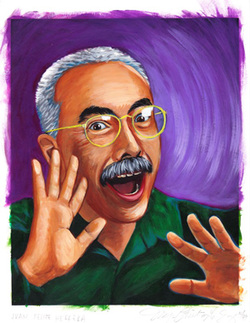 Juan Felipe Herrera Juan Felipe Herrera If your goal is to become an artist that can create realistic imagery, this is a great chance to practice, play and imagine doing this without an image underneath too. What or who would you love to paint using this technique? Your dog, your kid, your mum, your favorite artist…just promise me you’ll have fun. Thanks! Maya Gonzalez is largely self-taught. She has illustrated over 20 award-winning multicultural children’s books and written 3 with, not an end in sight! Her latest book, Call Me Tree, set to come out this year with Lee&Low Books, is her most recent labor of love! Her fine art has shown internationally and appears in numerous books about the contemporary Chicano Art Movement including on the cover of Living Chicana Theory and Contemporary Chicana and Chicano Art: Artists, Works, Culture and Education considered to be "the Bible of Chicano/a art." Ridiculously creative, she’s probably making art as you read this or thinking about making art if she’s driving a car or using the stove. And one of her ultimate passions is inspiring others to create books, because she believes that creating children's books has the potential to be one of the most radical things you can do! |
Meet the Friday Blogonauts
First Fridays will feature Bryan Patrick Avery, published writer , man of mystery, and professional magician among other things.
Second Fridays will feature awesome multi-award winning author Marsha Diane Arnold who will be writing about character-driven and/or nature-based books and/or anything she likes :) Third Fridays will feature independent Aladdin/Simon & Shuster editor Emma Sector who has helped bring many books into the world. Fourth Fridays will feature the great Christine Taylor-Butler who has published over 70 award-winning fiction and non-fiction and nonfiction books including the acclaimed new middle grade series - The Lost Tribes. Fifth Fridays will feature the fabulous Carl Angel award-winning multi-published Illustrator and graphic designer. Join our Tribe
and receive 7 Steps to Creative Happiness, access to free webinars, and lots more!
Your email addresses are always safe and respected with us. Follow our Blog!
Archives
January 2019
Categories
All
|
|
Discover
|
About Us
|
Join Us
Join our Community and receive a fabulous free gift, KidLit tips, newsletters, scholarship info, contests, and more!
Join our KidLit Mentorship |
Social Media
Interact with our FaceBook Group or follow us on:
|
© 2010-2024 All content on this website is copyrighted. Sorry, all courses are non-refundable.
